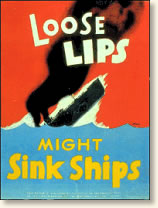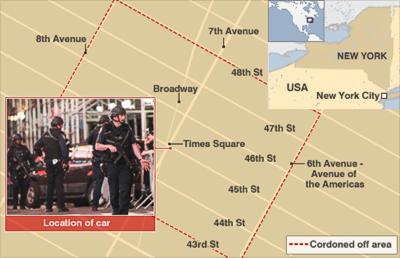But that's Somalia. I doubt that reviving piracy in parts of northern Mexico will have the same effect on the local economy.
Here's what got me started thinking about pirates, Mexico, and southwestern America's border waters:
"Pirates threaten boats on US-Mexico border lake"I'm not faulting the local Chamber of Commerce. That's what they do: try to present whatever's going on in their area in the best possible light. Here in Minnesota, it's a matter of emphasizing things like "four seasons of fun," instead of discussing our wildly variable climate.
The Associated Press (May 29, 2010)
"The waters of Falcon Lake normally beckon boaters with waterskiing and world-record bass fishing. But this holiday weekend, fishermen on the waters that straddle the U.S.-Mexico border are on the lookout for something more sinister: pirates.
"Twice in recent weeks, fishermen have been robbed at gunpoint by marauders that the local sheriff says are 'spillover' from fighting between rival Mexican drug gangs.
"Boaters are concerned about their safety, and the president of the local Chamber of Commerce is trying to assure people that everything's fine on the U.S. side of the lake...."
Zapata, Texas, Falcon Lake, Names and Change
Something that jumped out at me, reading the AP article, was the names. The Associated Press did a pretty good job of interviewing - and quoting - several different people. Presumably getting a representative sample of local views.The first person's name, Jack Cox, is what would have been called a 'regular American name' in my youth, shortly after the Truman administration. Mr. Cox also has what I think are valid concerns, considering the regional situation:
"...At the fishing camp his family has owned for 50 years, Jack Cox now sleeps with a loaded shotgun at his feet and a handgun within reach.My nobody in my household owns a firearm - but I do see why Mr. Cox takes the precautions he does. I also think he's got a point, about the border: Pirates are notorious for a lack of scrupulosity in observing legal restrictions.
In the American waters, Cox said, 'you're safer, but you're not safe.' Mexican commercial fishermen regularly cross to set their nets illegally, why wouldn't gunmen do the same? he asked...."
(AP)
A Few Boats Get Boarded: So What?
What's put Falcon Lake's pirates - or "gunmen" - in the news are a couple of recent incidents on the lake. The Texas Department of Public Safety issued a warning, two weeks ago, to stay away from the international border that runs the length of the lake - and notify relatives if they plan to go out on Lake Falcon.I suppose you could say that last request was self-serving, on the part of Texas authorities. Telling your next of kin that you planned to ply Lake Falcon's waters would give American law enforcement an idea of where to look for the bodies.
Since they issued that warning, American boats have - by and large - stayed on the American side of the border:
"...'That's a good indication. It means they're getting the message,' Texas Parks and Wildlife Capt. Fernando Cervantes said Thursday as he patrolled with two other game wardens. 'They're still coming out, but they're not going across.'..."Apart from the interior of some cities, Americans don't expect to be accosted by bandits. Let's put it this way: Tijuana, Mexico, isn't Irvine, California. So, when we have two incidents of piracy in a short space of time - it stands out.
(AP)
Names, Again
Remember what I said, about 'regular American names?' Fernando Cervantes doesn't fit that stereotype. But he's a captain in the Texas Parks and Wildlife department.Change happens.
Mexico: Beyond the Stereotypes
If your mental image of Mexico was formed by watching movies like "Thunder Over Mexico" (1933), you might want to do a little research on your own. Things have changed. A little:"Ecomomy:It's a sort of good news / bad news situation: Mexico's national government is at least making an effort to appear to be pulling Mexico into the late 20th century - and succeeding to some extent. That, in my view, is the good news. The bad news is that there seems to be only so much that the Mexican national government is able - or willing - to do about the country's tradition of relaxed and/or corrupt law enforcement.
"Mexico has a free market economy in the trillion dollar class. It contains a mixture of modern and outmoded industry and agriculture, increasingly dominated by the private sector. Recent administrations have expanded competition in seaports, railroads, telecommunications, electricity generation, natural gas distribution, and airports...."
(Mexico, World Factbook, CIA (last updated May 19, 2010))
Back to "Thunder Over Mexico:" a comment on the IMDB entry for that movie recalled the killing of Cardinal Posadas Ocampo at the Guadalajara Airport in May, 1993. PBS says it was a case of mistaken identity. (February, 1997) The assassins were supposed to kill somebody else.
That shootout at Guadalajara was between parties with an interest in one of Mexico's important exports: illicit drugs.
As the World Factbook put it:
"Illicit drugs:My hat's off to Mexico's leadership, in a way. Faced with tourist-killing levels of violence in formerly money-making spots like Tijuana, they looked to America in the sixties for wisdom - legalizing heroine and cocaine. In "small doses." ("Heroin and cocaine now legal in Mexico – in small doses" Guardian.co.uk (August 25, 2009))
"major drug-producing nation; cultivation of opium poppy in 2007 rose to 6,900 hectares yielding a potential production of 18 metric tons of pure heroin, or 50 metric tons of 'black tar' heroin, the dominant form of Mexican heroin in the western United States...."
(Mexico, World Factbook, CIA (last updated May 19, 2010))
From the looks of things, that didn't do much to make the drug cartels play well together.
So: that sleepy little village, with a peon sleeping under his sombrero and a tumbleweed blowing down the middle of an empty street? If that ever was a valid image of Mexico, it isn't now. The country's getting up to speed with the top nations of the world - by fits and starts. I think that there's a good chance that, generations from now, most Mexicans with get up and go will stay in Mexico: instead of getting up and going elsewhere.
Law Enforcement: It's Not the Same Everywhere
Not all nations approach law enforcement the same way:"...Game wardens and the U.S. Border Patrol watch over the lake but do not cross into Mexican waters, and no Mexican law enforcement is visible...."As 'sophisticated' as it sounds, not all countries are the same. (June 9, 2009) Some make an effort to control violent conflicts within their borders, some either can't or won't. Mexico isn't the only country with a law enforcement deficit. The outfit that's supposed to be Somalia's national government was having a hard time controlling the capital city, last I heard, and Jamaica looks like a contemporary analog of gangland Chicago ("Lemming Tracks: News from Jamaica," Apathetic Lemming of the North (May 25, 2010))
(AP)
I mentioned the Committee to Protect Journalists' Impunity Index in 2008. (April 30, 2008) Mexico was on the list then, and it still is. The index reflects how many unsolved murders of journalists a country has to its credit, adjusted for population. Although it's focus is quite narrow, I think it may be a useful indicator for how comfortable - or uncomfortable - a nation's leaders are with people who go around asking questions. There's more it than that - a number of the top nations have experienced massive armed conflict recently - several notches up from Mexico's drug wars.
| Impunity Index | |
2008:
| 2010:
|
What - if Anything - Does This have to do With the War on Terror?
Tourists getting killed, a dead Cardinal, and a little piracy of a border lake, aren't 'national security issues,' like some dude trying to set off a bomb in Times Square.That piracy thing is getting close, though.
The connection I see is that Mexico may - or may not - be able and willing to bring the drug bosses to justice. If the Mexican national government can't - or won't - do so, I think it's just a matter of time before the folks who make a killing by selling heroine in America will realize that they can use the same resources to bring weapons and terrorists into this country. For a price, of course.
On the other hand, maybe the drug bosses are sharp enough to realize that if an outfit like Al Qaeda ended up controlling America, they probably wouldn't be as diplomatic and diffident as the current government has been, dealing with rowdy neighbors.
Related posts:
- "Lemming Tracks: News from Jamaica"
Apathetic Lemming of the North (May 25, 2010) - "Raid on Monterrey, Mexico, Holiday Inn: Bad News, But That's about All We Know"
(April 21, 2010) - "North Korea and the Kim Jong Dynasty: Not All Countries are the Same"
(June 9, 2009)
Particularly - "The 90% Solution: American Guns, Mexican Raids, and Common Sense"
(April 2, 2009) - "Pakistan and Mexico Collapse Possible: Why I'm Glad Somebody Else is President"
(January 14, 2009) - "Guinea, Military Rule, and Terrorism: Beware Hasty Judgment"
(December 29, 2008) - "Committee to Protect Journalists Unveils the Impunity Index"
(April 30, 2008)



